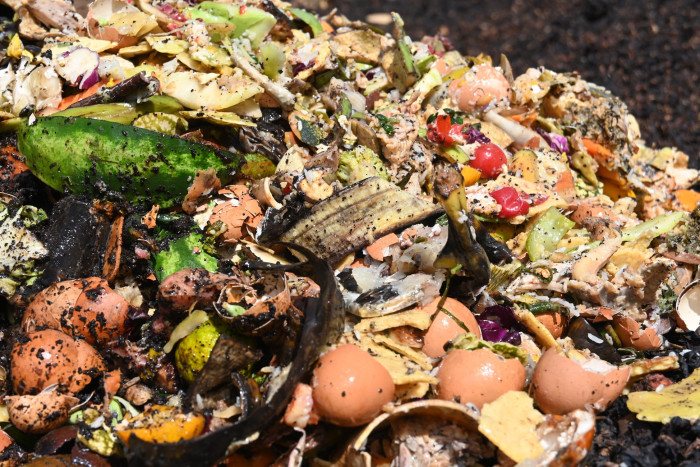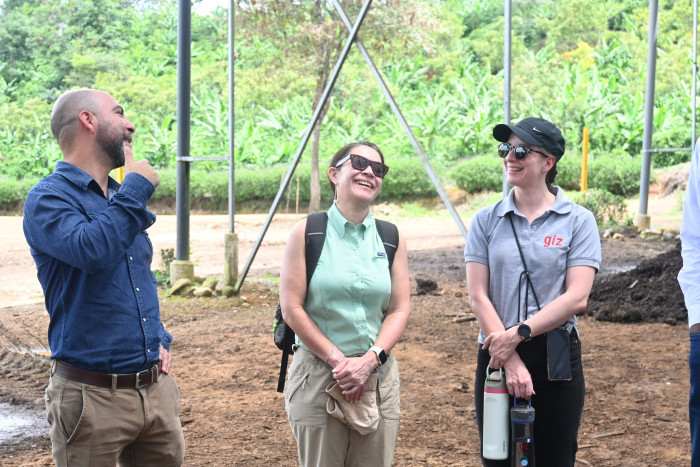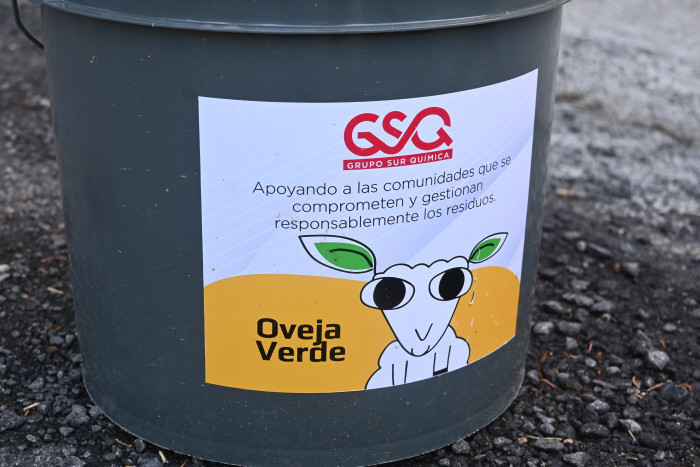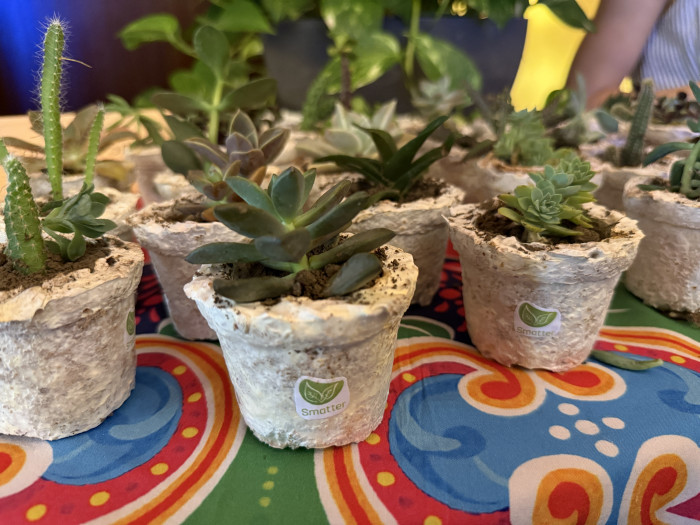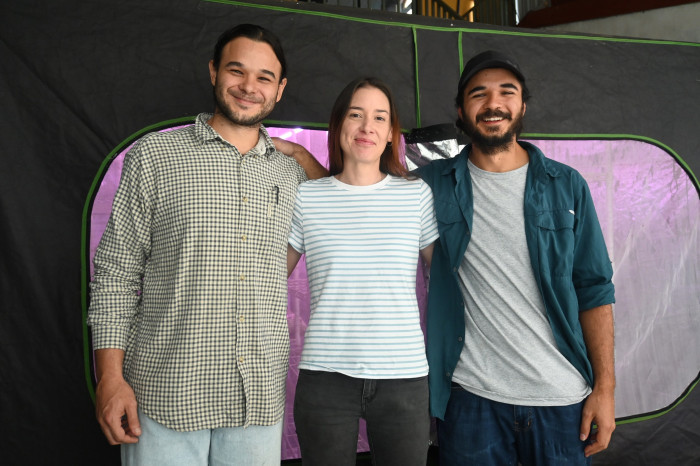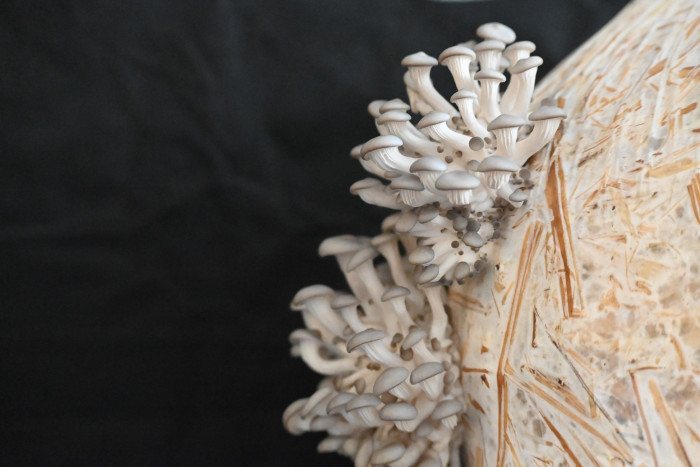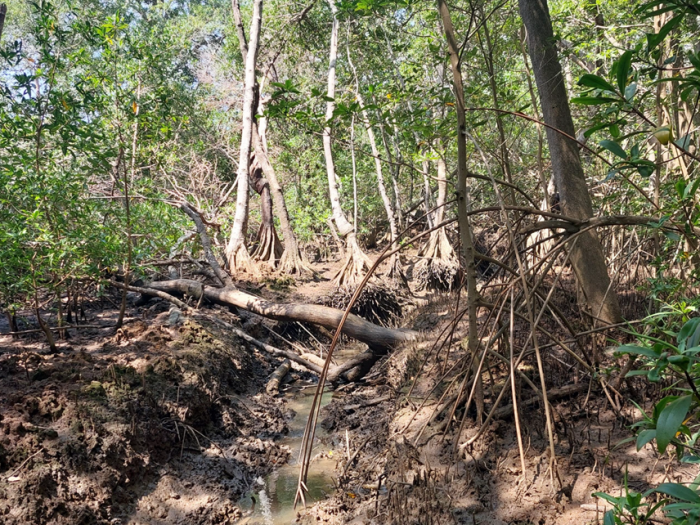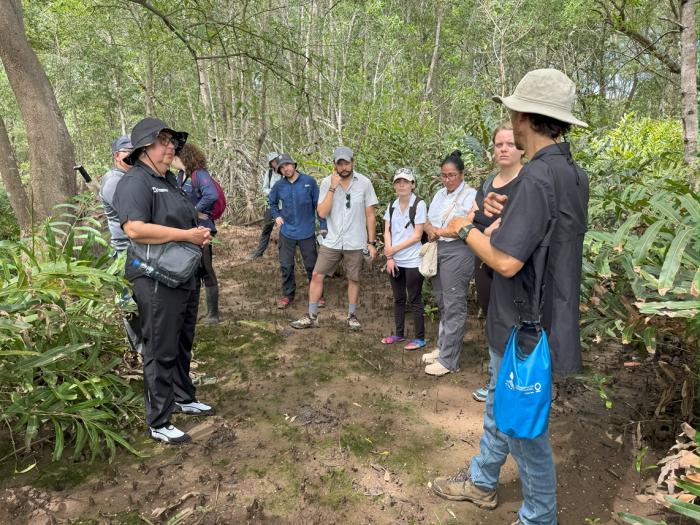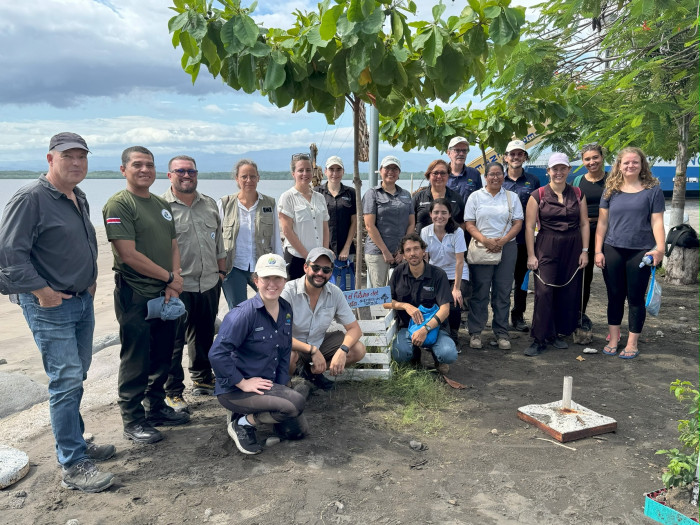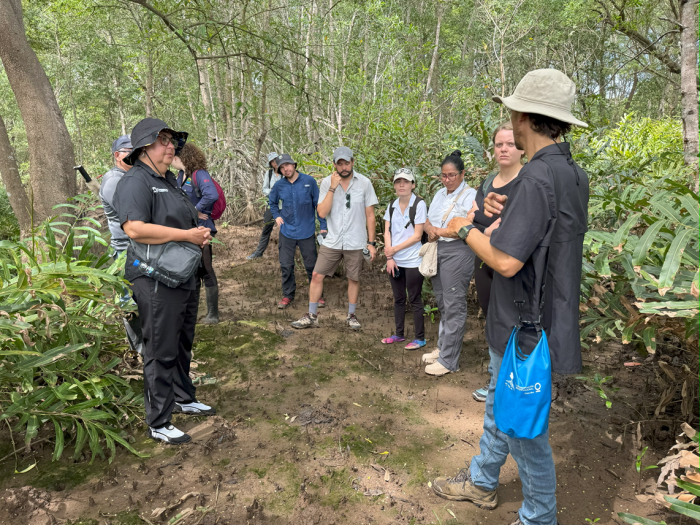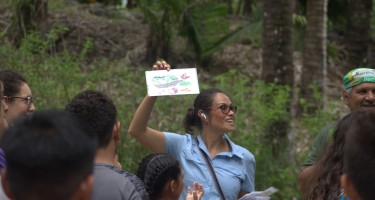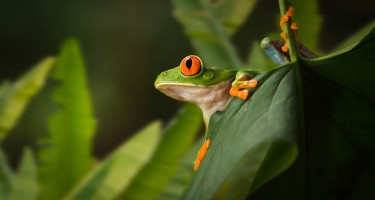Among Mangroves and Fungi, IKI Projects Demonstrate Their Impact in Costa Rica
Some trips change us – not because of the distance we travel, but because of the impact we witness and the people we meet along the way. That’s exactly what we experienced during our field trips to projects funded by Germany’s International Climate Initiative (IKI) on the final day of the 2025 IKI Central America and the Caribbean Workshop.
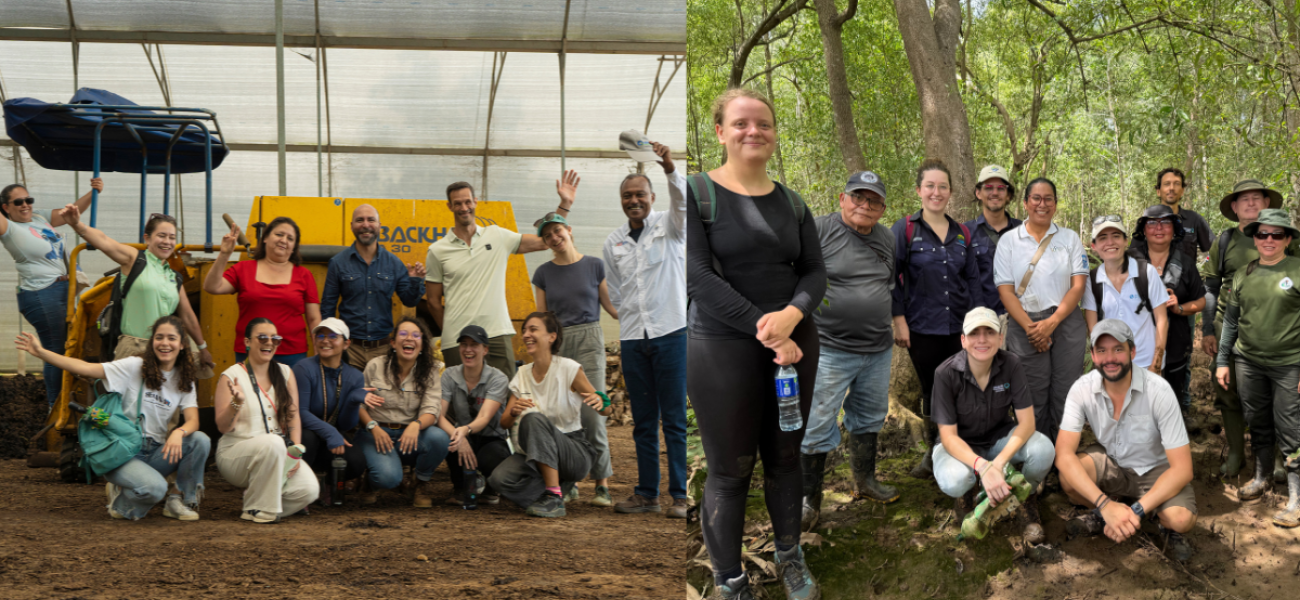
Left: © Melisa Jerez/GIZ | Right: © Andrés Mendez/GIZ
Cool Mountains, Composting, and Fungi That Replace Plastic – ACCIÓN Clima Project
If someone told you there were green sheep in Costa Rica’s Los Santos region… would you believe them?
Well, it’s true. More than 100 “green sheep” live there – families who participate in a composting program developed by the municipalities of León Cortés, Dota, and Tarrazú, with technical support from the ACCIÓN Clima project.
That’s why this visit took us through the cool, green mountains of Costa Rica, where sustainability is part of daily life.
Click play and feel the emotion of the field trip in every second.
We visited CoopeTarrazú, a local coffee cooperative where the organic waste collected by the municipalities is turned into compost. It’s part of a public-private partnership between the cooperative and the three local governments.
The “green sheep” separate their food scraps and store them in buckets, which they leave out every Tuesday at 6:00 a.m. for pickup. The collection teams then deliver the waste to CoopeTarrazú, where it’s processed into high-quality compost for local coffee farms.
Photo gallery: click the arrow to see the following images
ACCIÓN Clima led the prefeasibility studies, training session, and implementation of the “Oveja Verde” (“Green Sheep”) pilot program, which has now evolved into the next phase, as a permanent initiative to address Costa Rica’s national crisis of overfull landfills.
Our second stop took us to Cartago province, where we visited a lab in which fungi have taken on a whole new role: serving as raw material for products designed to replace traditional plastic. This innovation comes from Smatter, a startup supported by ACCIÓN Clima’s Climate Change and Biodiversity Startups program.
Photo gallery: click the arrow to see the following images
Smatter’s founders – Jocelyn López and brothers Jean Pierre and Richard Carit – create Mycopots: flowerpots made from fungi. These pots not only avoid plastic use; they also help protect plants from disease, ease the transplanting process, and even offer nutrients that promote stronger, healthier plants.
The TRANSFORMA-INNOVA Program: A Glimpse into Comprehensive Solutions for Mangrove Restoration and Coastal Marine Value Chains
For our second tour, we traveled to sunny Puntarenas to learn how the TRANSFORMA-INNOVA Program (PTI) is strengthening livelihoods, conserving ecosystems, and improving marine-coastal resource management in Costa Rica.
Spoiler: there was mud, sun, and lots of fun. Watch the video!
We split into two groups. The first visited mangrove restoration sites in the communities of La Pitahaya and El Establo, where local residents began this work more than four years ago. Conservación Internacional, a PTI consortium partner, has supported them from day one.
Jesús López, a community leader from La Pitahaya, greeted us at what looked like a typical sugarcane field – but it was actually a restored mangrove area. Wading through the mud, Jesús told us how, in 2021, he and more than 20 neighbors came together to rebuild the mangrove channels with their own hands and shovels. Their hard work produced two channels – 900 and 600 meters long – that now connect to the estuary and are steadily bringing the ecosystem back to life.
Photo gallery: click the arrow to see the following images
Meanwhile, the second group had the opportunity to navigate the mangrove channels by boat, guided by representatives from Costa Rica’s National System of Conservation Areas (SINAC). There, they learned about the historical pressures on these ecosystems, including illegal fishing, and the current efforts to promote ecotourism in local communities. They even had the chance to observe and chat with artisanal fishers at work.
At midday, we gathered for lunch at Isla Cocos, a restaurant in downtown Puntarenas. Over a seafood feast, restaurant owner Mario Zamora shared his commitment to the Ecogourmet: “from hook to plate” model.
Through this approach, Mario partners directly with fishers who follow sustainable practices and observe fishing restrictions. It ensures a fair price for the fishers – and fresh, responsibly sourced seafood for his customers. His menu also features products from other artisans, including a standout: mangrove bee honey produced by Jesús.
Photo gallery: click the arrow to see the following images
- Country: Costa Rica
- Project:
- Contact:
